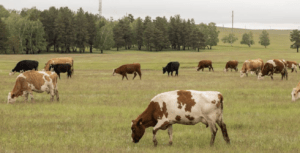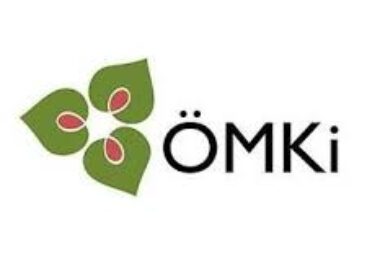Useful information and content about foot and mouth disease – in brief
Foot-and-mouth disease, which has already appeared in Hungary, is a highly contagious viral disease that affects even-toed ungulates (such as cattle, pigs, sheep, goats and some game). Although it does not pose a threat to human health, foot-and-mouth disease seriously affects food security, farmers’ livelihoods and domestic and international trade. Its symptoms include fever, blisters and lameness; adult animals are characterized by a high morbidity but low mortality rate. Young animals can die suddenly due to heart failure.
 Foot-and-mouth disease reduces agricultural productivity, including milk and meat yields, as well as reproduction. It has a significant economic impact in terms of production losses, costs of control measures and loss of access to markets. The reduction in production and vaccination alone could result in annual losses of up to US$28 billion in affected regions. The actual economic burden is much higher when trade impacts are taken into account. Rural communities and the livestock sector are the most affected.
Foot-and-mouth disease reduces agricultural productivity, including milk and meat yields, as well as reproduction. It has a significant economic impact in terms of production losses, costs of control measures and loss of access to markets. The reduction in production and vaccination alone could result in annual losses of up to US$28 billion in affected regions. The actual economic burden is much higher when trade impacts are taken into account. Rural communities and the livestock sector are the most affected.
Comprehensive control and prevention strategies are essential to mitigate these impacts. Foot-and-mouth disease can be controlled through vaccination, restrictions on animal movements and biosecurity measures. In some cases, infected animals or herds must be slaughtered. Despite available control measures, the disease remains common and is estimated to affect around 2% of the world’s cattle herd each year.
Facts about foot-and-mouth disease
Foot-and-mouth disease is caused by several serotypes of a virus, each requiring a separate vaccine to provide protection.
It infects even-toed ungulates but is not dangerous to humans.
Foot-and-mouth disease is currently endemic in Africa, Asia, the Middle East and parts of South America.
The disease spreads rapidly within and between regions due to its high transmissibility and the large number of susceptible species.
Control measures include vaccination, biosecurity measures, restrictions on animal transport and, in some cases, compulsory culling.
Related news
We will protect the safety of Hungarian food by all means.
🎧 Hallgasd a cikket: Lejátszás Szünet Folytatás Leállítás Nyelv: Auto…
Read more >FAO food price index falls for five months
🎧 Hallgasd a cikket: Lejátszás Szünet Folytatás Leállítás Nyelv: Auto…
Read more >Organic Agricultural Research Institute: Hungarian apples are safe
🎧 Hallgasd a cikket: Lejátszás Szünet Folytatás Leállítás Nyelv: Auto…
Read more >Related news
Historic price reduction at ALDI
🎧 Hallgasd a cikket: Lejátszás Szünet Folytatás Leállítás Nyelv: Auto…
Read more >A stable compass in the Hungarian FMCG sector for 20 years
🎧 Hallgasd a cikket: Lejátszás Szünet Folytatás Leállítás Nyelv: Auto…
Read more >








